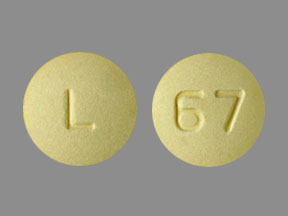
Nevirapine ER Coupons & Savings Card – Discount Prices from $209.55
Generic for: Viramune xr
Nevirapine, marketed as Viramune, is an antiretroviral medication used in combination with other drugs to manage HIV infections. It is available in both immediate-release and extended-release forms, as well as an oral suspension for those who have difficulty swallowing, including children. As a non-nucleoside reverse transcriptase inhibitor (NNRTI), Nevirapine works by blocking the reverse transcriptase protein in HIV, which the virus uses to replicate. By inhibiting this protein, Nevirapine helps reduce the amount of HIV in the body, thereby enhancing the immune system's function and lowering the risk of HIV-related complications such as infections and cancer. Although Nevirapine is effective in controlling HIV, it is not a cure and should not be used to prevent infection after exposure. It's important to adhere strictly to the prescribed regimen and to use protective measures such as condoms to prevent the spread of HIV. Be aware that Nevirapine can sometimes cause severe rashes, particularly within the first four months of treatment, and medical attention should be sought immediately if this occurs. Always consult healthcare professionals for advice tailored to your specific health needs.
Our coupons are free to use. Before paying, show the pharmacist your Nevirapine ER savings card to get your free discount. Use our filters below to edit the prescription box to match your needs. The Nevirapine ER prices will update based on your prescription needs. Above our Nevirapine ER coupons, you can change your location to see pharmacy prices and costs in other areas. We're here to help you buy Nevirapine ER at the lowest price with our prescription discount card.
My prescription
Edit
100MG, Nevirapine ER (90 Tablet Extended Release 24 Hours)
Select pharmacy

CVS
$209.55
COUPON PRICE
Walgreens
$217.58
COUPON PRICE
Walmart
$584.45
COUPON PRICE
Albertsons
$612.67
COUPON PRICENevirapine ER savings card
Show this card to your pharmacist
CVS
$209.55
BIN
ID
PCN
GRP
015995
LHKPW639557
GDC
DR33
Powered by
Nevirapine, marketed as Viramune, is an antiretroviral medication used in combination with other drugs to manage HIV infections. It is available in both immediate-release and extended-release forms, as well as an oral suspension for those who have difficulty swallowing, including children. As a non-nucleoside reverse transcriptase inhibitor (NNRTI), Nevirapine works by blocking the reverse transcriptase protein in HIV, which the virus uses to replicate. By inhibiting this protein, Nevirapine helps reduce the amount of HIV in the body, thereby enhancing the immune system's function and lowering the risk of HIV-related complications such as infections and cancer. Although Nevirapine is effective in controlling HIV, it is not a cure and should not be used to prevent infection after exposure. It's important to adhere strictly to the prescribed regimen and to use protective measures such as condoms to prevent the spread of HIV. Be aware that Nevirapine can sometimes cause severe rashes, particularly within the first four months of treatment, and medical attention should be sought immediately if this occurs. Always consult healthcare professionals for advice tailored to your specific health needs.
Our coupons are free to use. Before paying, show the pharmacist your Nevirapine ER savings card to get your free discount. Use our filters below to edit the prescription box to match your needs. The Nevirapine ER prices will update based on your prescription needs. Above our Nevirapine ER coupons, you can change your location to see pharmacy prices and costs in other areas. We're here to help you buy Nevirapine ER at the lowest price with our prescription discount card.
More prescriptions for hiv treatment
More prescriptions for hiv treatment
Cimduo Save 14%coupons from $1279.04
Ritonavir Save 34%coupons from $31.58
Symfi Lo Save 60%coupons from $684.25
Kaletra Save 62%coupons from $360.50
Maraviroc Save 69%coupons from $424.99
Symfi Save 78%coupons from $318.16
Ziagen Save 17%coupons from $43.92
Abacavir Save 17%coupons from $43.92
Nevirapine ER dosage forms
Use our Nevirapine ER 100MG coupon with prices from $602.13 for 90 Tablet Extended Release 24 Hours. You can also use our Nevirapine ER 400MG coupon with prices from $36.65 for 30 Tablet Extended Release 24 Hours.
Dosage Quantity Price from Per unit 100MG 90 Tablet Extended Release 24 Hours $602.13 $6.69 400MG 30 Tablet Extended Release 24 Hours $36.65 $1.22
| Dosage | Quantity | Price from | Per unit |
|---|---|---|---|
| 100MG | 90 Tablet Extended Release 24 Hours | $602.13 | $6.69 |
| 400MG | 30 Tablet Extended Release 24 Hours | $36.65 | $1.22 |
